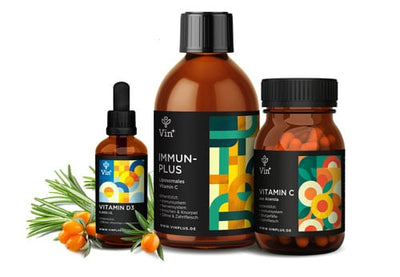Sport and healthy eating are a team that should not be separated as it is a fundamental requirement necessary for athletic performance. In order to cover the basic needs , water, fats, proteins, vitamins and carbohydrates are necessary. Carbohydrates and fats are needed by the body for energy and proteins to build body cells. In sports, both metabolic processes are absolutely necessary and must be supplied to the body in sufficient quantities. Since the body is made up of 50% water, it is important to drink plenty of fluids first, so 2 to 3 liters of fluid in the form of tea, unsweetened juices and mineral water should be drunk per day during physical activity. During the sport, drinks that contain a lot of carbohydrates are recommended in between. Each liter of liquid should contain at least 40 to 80 grams of carbohydrates. This amount can easily be achieved with fruit spritzers. Slightly salted drinks also compensate for the loss of sodium.
 Carbohydrates are important sources of energy for mental and athletic performance, and these should make up half of the daily energy requirement. A major diet in athletes consists of grain products, which provide essential nutrients such as protein, vitamins, and fiber. Potatoes, legumes and rice contain plenty of carbohydrates. Also in fruit and salad. Grain products also contain important proteins that every athlete needs to build muscle cells and regenerate muscle mass. Per kilogram of body weight, 0.8 grams of protein should be consumed daily. Fats are also important for the organism, but very sparingly. The body should be covered with 30 percent fat. Lean meat is recommended at most 3 times a week so as not to absorb too much saturated fat. Saturated fat increases cholesterol and blood fat levels. Vegetable unsaturated fatty acids, found in nuts and plant seeds, are preferable. In order to achieve maximum performance in sports, vitamins are also necessary. Vitamins are optimally converted and utilized by the body. Since vitamins are not produced by the body itself, there should be a lot of fruit on the daily menu . Above all, vitamin B is important, which provides energy and renews cells. Vitamins can also be ingested through meat and milk products.
Carbohydrates are important sources of energy for mental and athletic performance, and these should make up half of the daily energy requirement. A major diet in athletes consists of grain products, which provide essential nutrients such as protein, vitamins, and fiber. Potatoes, legumes and rice contain plenty of carbohydrates. Also in fruit and salad. Grain products also contain important proteins that every athlete needs to build muscle cells and regenerate muscle mass. Per kilogram of body weight, 0.8 grams of protein should be consumed daily. Fats are also important for the organism, but very sparingly. The body should be covered with 30 percent fat. Lean meat is recommended at most 3 times a week so as not to absorb too much saturated fat. Saturated fat increases cholesterol and blood fat levels. Vegetable unsaturated fatty acids, found in nuts and plant seeds, are preferable. In order to achieve maximum performance in sports, vitamins are also necessary. Vitamins are optimally converted and utilized by the body. Since vitamins are not produced by the body itself, there should be a lot of fruit on the daily menu . Above all, vitamin B is important, which provides energy and renews cells. Vitamins can also be ingested through meat and milk products.
Important energy supply for every athlete









